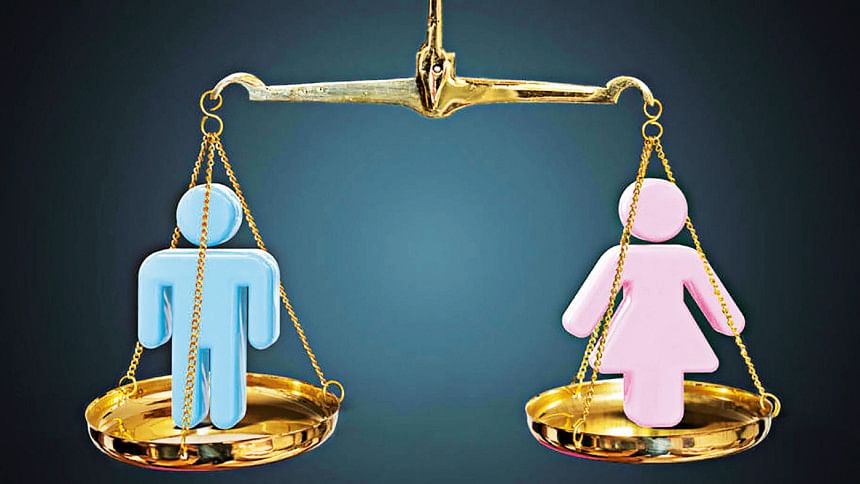Towards a gender-responsive criminal justice system

Gender-based violence against women creates a serious obstacle to achieving sustainable development. As stated in the UN Secretary-General's in-depth study on all forms of violence against women (2006): "violence prevents women from contributing to, and benefiting from, development by restricting their choices and limiting their ability to act, which ultimately affects the overall developmental activities of a State. So, all UN Member States, including Bangladesh, is under a clear obligation to prevent violence against women and girls so that they can participate with their full potential in economic, social, and political spheres.
The government of Bangladesh has undertaken a number of initiatives legal and institutional, to ensure a violence-free life for women. However, these initiatives have not been translated into concrete improvements in the lives of most women who remain marginalised, discriminated against, and at a high-risk of being subjected to violence.
The absence of effective legal protection, lack of political will, absence of awareness, absence of gender-sensitive attitude among duty bearers, and many other socio-legal factors are considered to be the responsible factors behind this heinous occurrence. But the existing legal set-up and its ineffective role remains the major concern in the matter of dealing with violence against women. There is a pressing demand to review the existing legislation not only to ensure equal access to justice for victims of violence but also to allow a woman to live her life without violence. The starting point in this regard should be revisiting the existing legislation to make sure that all acts of gender-based violence are effectively dealt with by law.
Stereotypical assumptions about gender roles, gender identities, and gender relations contribute to the continuance of gendered violence against women. Cultural stereotypes about the role of women and men that men are the ultimate decision makers, and they are superior to women in terms of intellect, strength, quality, etc. permit discrimination whether it is in the domestic sphere or in the public sector. In addition, these stereotypes find their ways in legislation while addressing certain offences, sometimes by sidestepping the offence or sometimes by maintaining ambiguity in defining the scope of the offence. Non-criminalising marital rape can be an example in this regard.
Unfortunately, even when conscious efforts are made to liberate legislation of these gender-biased stereotypes, some other balanced provisions often compromise these efforts. The Child Marriage Restraint Act, 2017 prohibits child marriage (under 18 years for a female child and under 21 years for a male child). However, the Act introduces a special provision, exceptionally allowing child or underage marriages, where a court rules that such marriage is in the 'best interest of the child.' That means the prevalent cultural stereotypes regarding the status of women are so dominant that laws on gender-based violence are yet to achieve a gender-sensitive approach towards women.
The gender-insensitive approach is evident in many prevalent provisions in present gender-based violence laws in Bangladesh, such as, there is no provision for providing training for officers, who are responsible for handling the victims on their way to justice, though a gender-sensitive justice system highly demands so. Consequently, in every stage of access to justice, ranging from reporting the violent incident to the police station to undergoing an intimate medical examination in a crowded hospital, mostly by male doctors, they (victim) may face discrimination, and harassment causing "secondary victimisation". These stereotypes help perpetuate violence against women, and hence immediate action is needed to address them through appropriate legislation.
Law as an instrument of social change will have to be altered occasionally to deal with the changing social evils. At the same time, the initiative must be coupled with the incorporation of gender-responsive provisions for better application of laws. A necessary prerequisite for the effective application of laws is that justice agents are gender sensitive and knowledgeable of human rights standards. In this regard, education, training, and awareness raising programmes are crucial.
It is recognised by the policymakers around the world that implementing fundamental, transformative reform is possible if law reforms actively promote equal rights for all. Hence, while designing and implementing laws, the voices, perspectives, and priorities of women and girls should be considered in ways that would ensure that the rights of women and girls are meaningfully protected, promoted, and implemented.
The Writer is an Assistant Professor at Department of Law, Premier University, Chittagong.

 For all latest news, follow The Daily Star's Google News channel.
For all latest news, follow The Daily Star's Google News channel. 



Comments